The impact of soil on balcony vegetable gardening cannot be overstated. It is the foundation upon which your plants grow and thrive. Soil plays a crucial role in the success of the balcony vegetable garden. It serves as the foundation for your plants, providing them with nutrients, water, and support. Understanding the role of soil is key to creating a thriving garden.
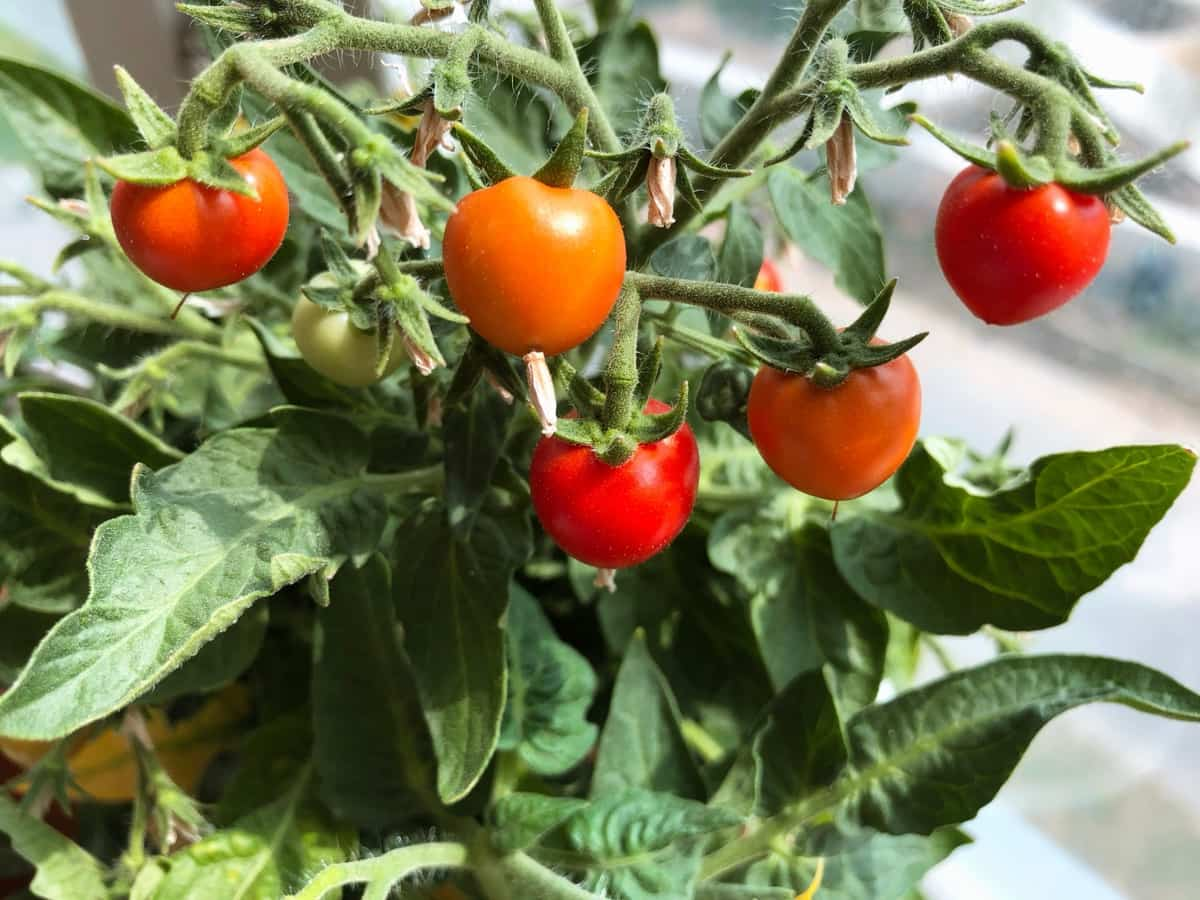
Soil acts as a reservoir for water and nutrients. It holds the moisture your plants need to survive during dry periods and releases it slowly. This helps prevent overwatering or underwatering, which can harm plant health. Soil provides support for plant roots. A well-draining soil allows roots to penetrate easily and establish themselves. This ensures strong anchorage and stability for your plants as they grow taller.
Soil and Fertilizer in Balcony Vegetable Gardening
The Significance of Fertilizer in Balcony Vegetable Gardening
Fertilizers provide essential nutrients that are necessary for plant growth and development. They help replenish the soil with vital elements such as nitrogen, phosphorus, and potassium – often referred to as NPK – which support overall plant health. Using fertilizers specifically formulated for vegetables ensures plants get the nutrients they need to thrive. These fertilizers are typically rich in micronutrients like iron, zinc, and magnesium, essential for healthy leaf production and fruit formation.
One of the key benefits of using fertilizer is its ability to improve soil fertility over time. Regular application helps replenish nutrient levels that may be depleted due to plant uptake or leaching from watering. This ensures a steady supply of nourishment for your plants throughout their growing season. Incorporating fertilizer becomes even more significant in balcony vegetable gardening, where space is limited and containers restrict access to natural soil ecosystems. It compensates for deficiencies in potting mixes or composts used for container gardening.
Exploring the Importance of Soil Quality for Successful Balcony Vegetable Gardening
Soil quality is a crucial factor that determines the success of a balcony vegetable garden. Good soil quality ensures proper root development and nutrient absorption for your plants. It provides a stable base for them to grow and thrive in a limited space. Poor-quality soil can cause stunted growth and nutrient deficiencies. High-quality soil promotes water retention while allowing adequate drainage. This balance is essential as overwatering or inadequate drainage can suffocate plant roots or cause root rot.
In case you missed it: 14 Creative Ideas for Small Balcony Vegetable Gardens
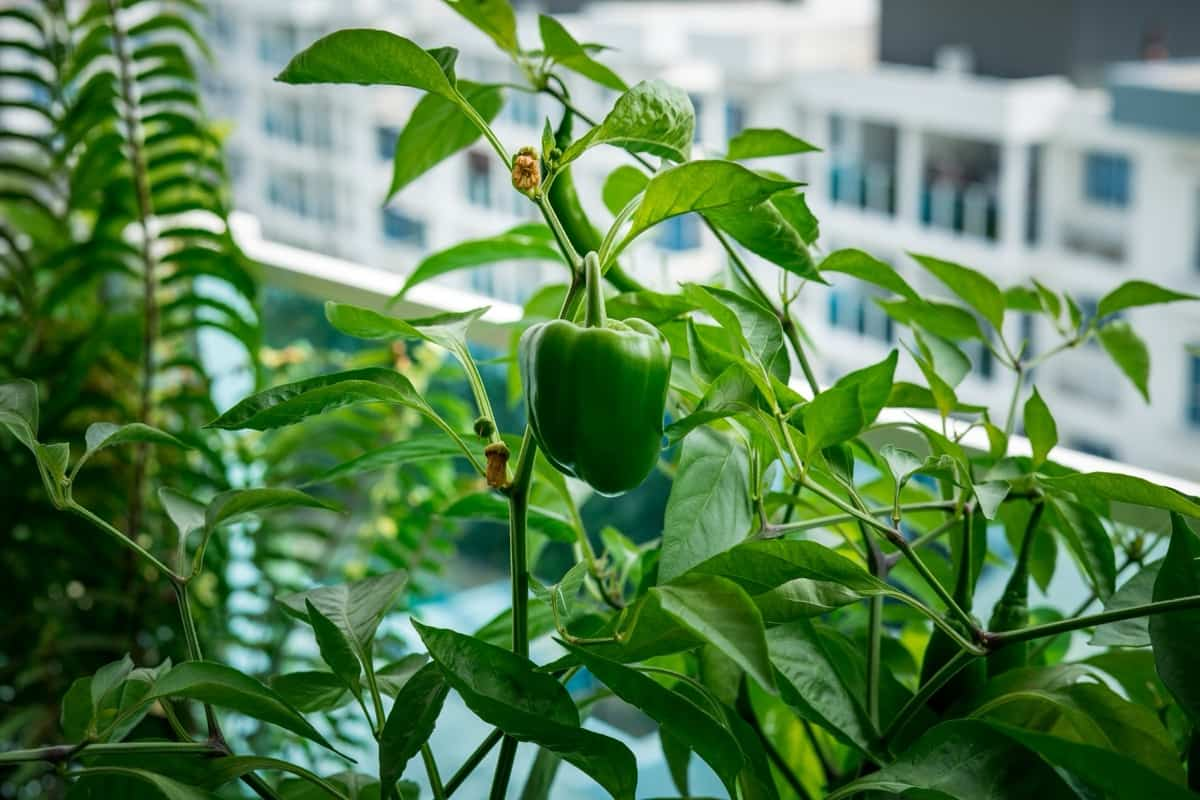
Furthermore, healthy soil supports beneficial microbial activity. These microbes break down organic matter into nutrients that plants can absorb easily. They also help suppress harmful pathogens and pests, keeping your plants strong and resistant. To ensure optimal soil quality, consider using a well-draining potting mix for container gardening. These mixes usually contain a blend of peat moss, compost, vermiculite, or perlite that provides ideal plant growth conditions.
Maximizing Crop Yield: The Role of Soil and Fertilizer in Balcony Gardening
The role of soil in balcony gardening cannot be underestimated. It provides essential nutrients, anchors roots, and retains moisture necessary for plant growth. A high-quality potting mix enriched with organic matter can significantly affect crop yield. But it doesn’t stop there – fertilizers play a crucial role too. They provide additional nutrients that may be lacking in the soil, ensuring optimal plant growth and development.
By choosing the right fertilizer based on your plants’ needs and applying it at appropriate intervals, you can give your crops the nutrient boost they need to thrive. Proper soil management and fertilization can work wonders for your balcony garden. Good soil ensures plants access essential nutrients while maintaining proper drainage and water retention. Fertilizers supplement these nutrients, promoting healthy leafy growth or encouraging robust flowering and fruiting.
Enhancing Nutrient Availability: Soil and Fertilizer in Balcony Vegetable Gardening
When it comes to balcony vegetable gardening, ensuring the availability of nutrients is crucial for healthy plant growth and abundant harvests. Both soil quality and fertilizer are vital in enhancing nutrient availability, providing plants with the essential elements they need to thrive. Soil is a reservoir for nutrients, holding them in its structure and releasing them slowly. The right combination of organic matter, minerals, and pH levels can significantly impact nutrient availability.
By maintaining optimal soil conditions through regular testing and amendments, you can ensure your plants have access to the necessary nutrients throughout their growing cycle. Fertilizer supplements the soil’s natural nutrient content by providing additional elements that may be lacking or depleted over time. Whether using organic or synthetic fertilizers, choosing ones appropriate for your specific crop needs is important. This will help replenish deficiencies while avoiding excesses that could harm plants and the environment.
The Impact of Soil Health on Balcony Vegetable Garden Productivity
The health of the soil in your balcony vegetable garden plays a crucial role in determining the productivity of your plants. Having nutrient-rich and well-drained soil is key when it comes to growing vegetables. Healthy soil is a reservoir of minerals vital for plant growth and development. Nutrient deficiencies can significantly impact the productivity of your vegetables, leading to stunted growth or poor crop yield.
In case you missed it: 13 Practices for Sustainable Balcony Vegetable Gardening
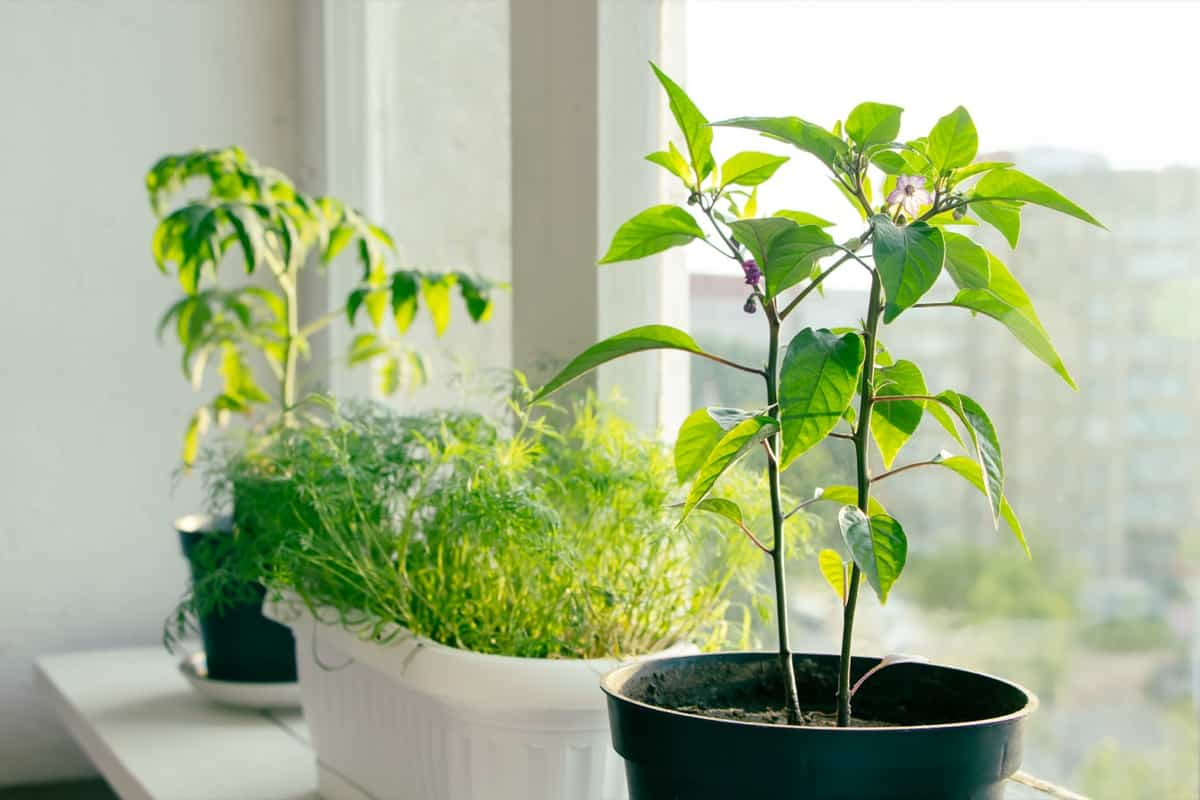
In addition to nutrient availability, soil health directly affects the root system of your plants. A healthy soil structure promotes strong root development and allows roots to penetrate deeply. This enables better absorption of water and nutrients by the plants. Furthermore, good soil health supports beneficial microbial activity. Microorganisms in healthy soils break down organic matter into simpler forms that plant roots can easily absorb. These microorganisms also help protect against harmful pathogens damaging your balcony vegetable garden.
Achieving Optimal Plant Growth with Proper Soil and Fertilizer Management in Balcony Gardens
Achieving optimal plant growth in a balcony garden requires proper soil and fertilizer management. The right combination of these two elements can make all the difference in the health and productivity of your plants. Good quality soil is essential for providing a solid foundation for your plants. It should be well-draining yet retain enough moisture to keep the roots hydrated.
Using a mix of organic matter such as compost or peat moss can help improve soil structure and fertility. In addition to good soil, fertilizers are crucial in providing nutrients that may be lacking in the garden. They replenish vital elements like nitrogen, phosphorus, and potassium for healthy plant growth.
Applying fertilizer at the right time and in appropriate amounts ensures your plants receive the necessary nourishment. Proper soil and fertilizer management involves understanding the specific requirements of the different types of vegetables you’re growing on your balcony. Some vegetables prefer more acidic or alkaline soils, while others have high nutrient demands.
The Essential Connection between Soil and Fertilizer in Balcony Vegetable Gardening
To achieve a bountiful harvest in your balcony vegetable garden, it is crucial to understand the essential connection between soil and fertilizer. These two elements work hand in hand to provide plants with the necessary nutrients for their development. Soil is the foundation for your plants, providing support, anchorage, and access to water. It serves as a reservoir for nutrients while also supplying vital minerals and microorganisms that aid in nutrient absorption. The quality of your soil directly impacts plant health and productivity.
On the other hand, fertilizer supplements the natural nutrient content of the soil by providing additional elements required for plant growth. It helps replenish any deficiencies in soil composition, ensuring balanced nutrition for your vegetables. Fertilizers come in different forms, such as organic compost or synthetic blends that release nutrients over time. Combining appropriate amounts of both soil amendments creates an ideal growing medium tailored to meet your plants’ needs. This dynamic duo maximizes crop yield by enhancing nutrient availability throughout the growing season.
Promoting Sustainable Practices: Soil and Fertilizer in Balcony Gardening
Sustainable practices are vital in maintaining your balcony vegetable garden’s long-term health and productivity. By prioritizing soil quality and implementing proper fertilizer management, you can create an environmentally friendly gardening system that benefits your plants and the planet. One key aspect of promoting sustainability is using organic fertilizers. These natural alternatives provide essential nutrients to your plants and minimize environmental harm.
Organic fertilizers, such as compost or manure, enrich the soil with valuable minerals while reducing chemical runoff into water sources. Additionally, practicing crop rotation helps prevent nutrient depletion and pest infestations in your balcony garden. By rotating what you grow each season, you ensure balanced nutrient uptake by different plant varieties while minimizing disease risks.
In case you missed it: Top 12 Attractive Foliage Plants for a Sunny Balcony Garden
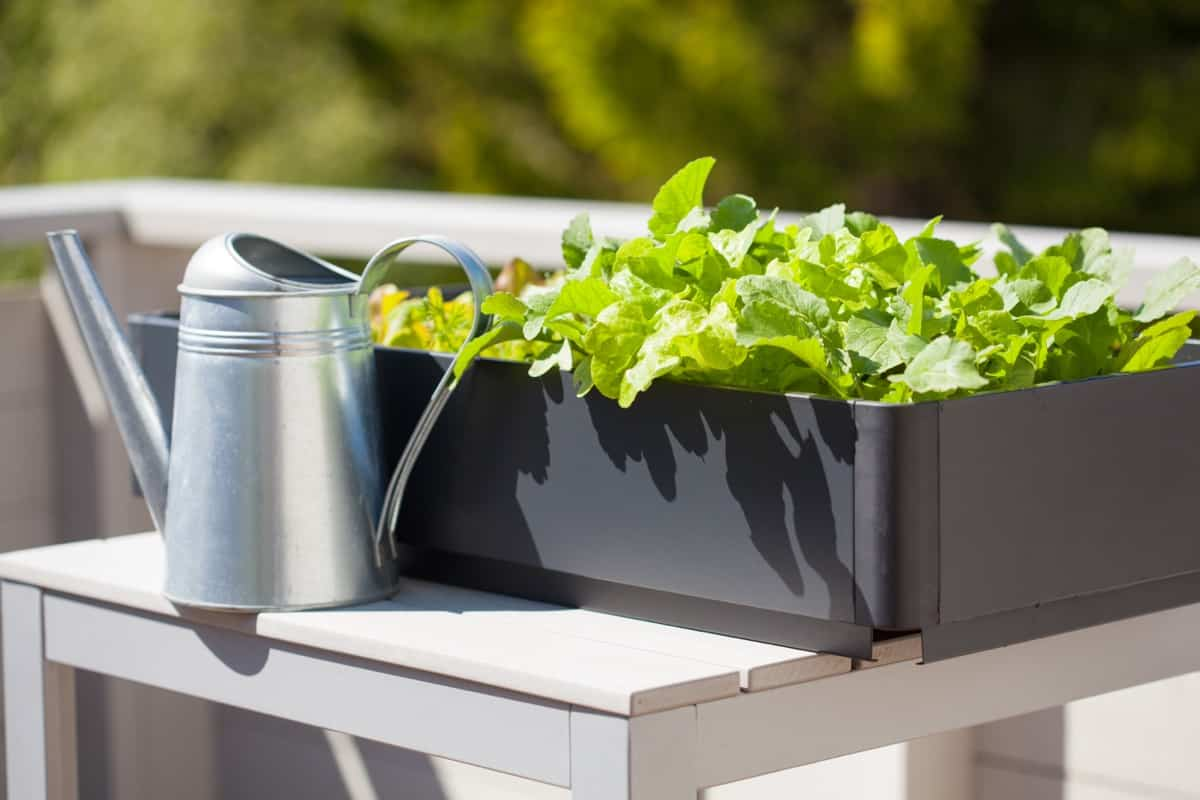
Composting reduces food waste going to landfills while providing a free source of organic matter for improving soil structure and fertility. Furthermore, conserving water through efficient irrigation systems like drip irrigation or self-watering containers promotes sustainability in balcony gardening.
Nurturing Healthy Plants: The Importance of Soil and Fertilizer in Balcony Vegetable Gardening
Nurturing healthy plants is the goal of any gardener, and this holds for balcony vegetable gardening as well. To achieve vibrant and thriving plants, it is crucial to understand the importance of soil and fertilizer in this specific type of gardening. The soil is the foundation for plant growth, providing essential nutrients and support. Choosing the right soil becomes even more critical in balcony gardens, where space may be limited.
Opting for a high-quality potting mix that is light yet rich in organic matter can ensure optimal plant health. Fertilizer is complementary in balcony vegetable gardening by replenishing nutrients that may deplete over time. It acts as a supplement to the existing soil fertility, providing an extra boost for robust plant growth. By selecting a fertilizer with balanced macro- and micronutrients specifically formulated for vegetables, you can ensure your plants get everything they need to thrive.
Regularly monitoring and adjusting soil quality and nutrient levels are vital to nurturing healthy plants on your balcony. Conducting periodic soil tests can help identify deficiencies or imbalances hindering plant growth. This allows you to take proactive measures, such as adding organic matter or adjusting fertilizer applications accordingly.
Understanding the Nutrient Cycle: Soil and Fertilizer in Balcony Gardens
One of the key aspects of successful balcony vegetable gardening is understanding the nutrient cycle within the soil. It’s a fascinating process involving continuous movement and transformation of essential nutrients, ensuring they are available for plant uptake. The nutrient cycle begins with organic matter, such as decomposed plant material or compost, which adds valuable nutrients to the soil. As plants grow and absorb these nutrients, they leave behind their organic matter through fallen leaves or pruning trimmings.
This organic matter eventually breaks down and replenishes the soil with new nutrients, restarting the cycle. Fertilizers play an important role in this cycle by providing additional nutrients when natural sources may be insufficient. They act as a supplement, ensuring plants receive all necessary elements for optimal growth. However, using fertilizers judiciously is crucial to prevent overloading or depleting the soil. Balcony gardeners can support this nutrient-cycling process by incorporating organic practices into their gardening routine.
Improving Water Retention and Drainage: The Role of Soil in Balcony Vegetable Gardening
When growing vegetables on your balcony, one crucial factor you need to consider is the soil quality. Good soil composition ensures proper water retention and drainage for your plants. Balconies often have limited space, which means containers or pots are used to grow vegetables. These containers can vary in size, but having the right soil type is essential regardless of their dimensions.
Choosing a well-draining soil mix that maintains moisture without becoming waterlogged is important to improve water retention. A balanced blend of organic matter like compost, peat moss, perlite, or vermiculite can help achieve this ideal balance. In addition to choosing the right soil mix, incorporating organic matter into your balcony garden can greatly enhance water retention capabilities. Organic matter acts as a sponge within the soil, absorbing excess water during heavy rainfall and gradually releasing it to the plants when needed.
In case you missed it: How to Create a Beautiful Flower Garden in the Balcony
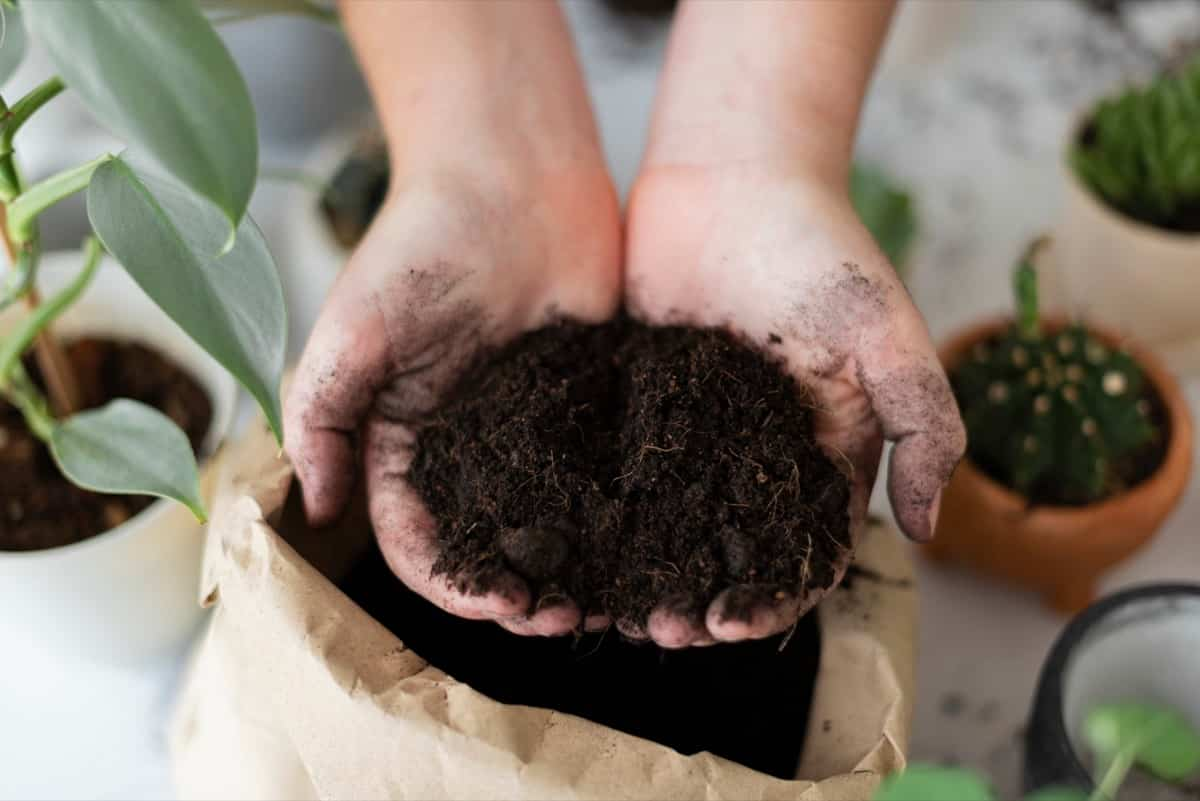
Furthermore, proper drainage is equally important for healthy plant growth. Excess water may accumulate at the bottom without adequate container drainage and cause root suffocation. To ensure good drainage in your balcony vegetable garden, consider adding gravel or small rocks at the bottom layer of your container before filling it with soil.
Boosting Plant Resilience: Fertilizer’s Contribution to Balcony Vegetable Gardening
When it comes to balcony vegetable gardening, plant resilience is crucial. After all, you want your plants to thrive and withstand the challenges they may face in a confined space. Fertilizers provide nutrients that plants need for healthy growth and development. By replenishing the soil with these nutrients, fertilizers help boost plant resilience against environmental stressors such as extreme weather conditions or pests.
In case you missed it: Balcony Grill Garden Ideas: Small Spaces, Apartments, and Best Plants to Grow on Grills
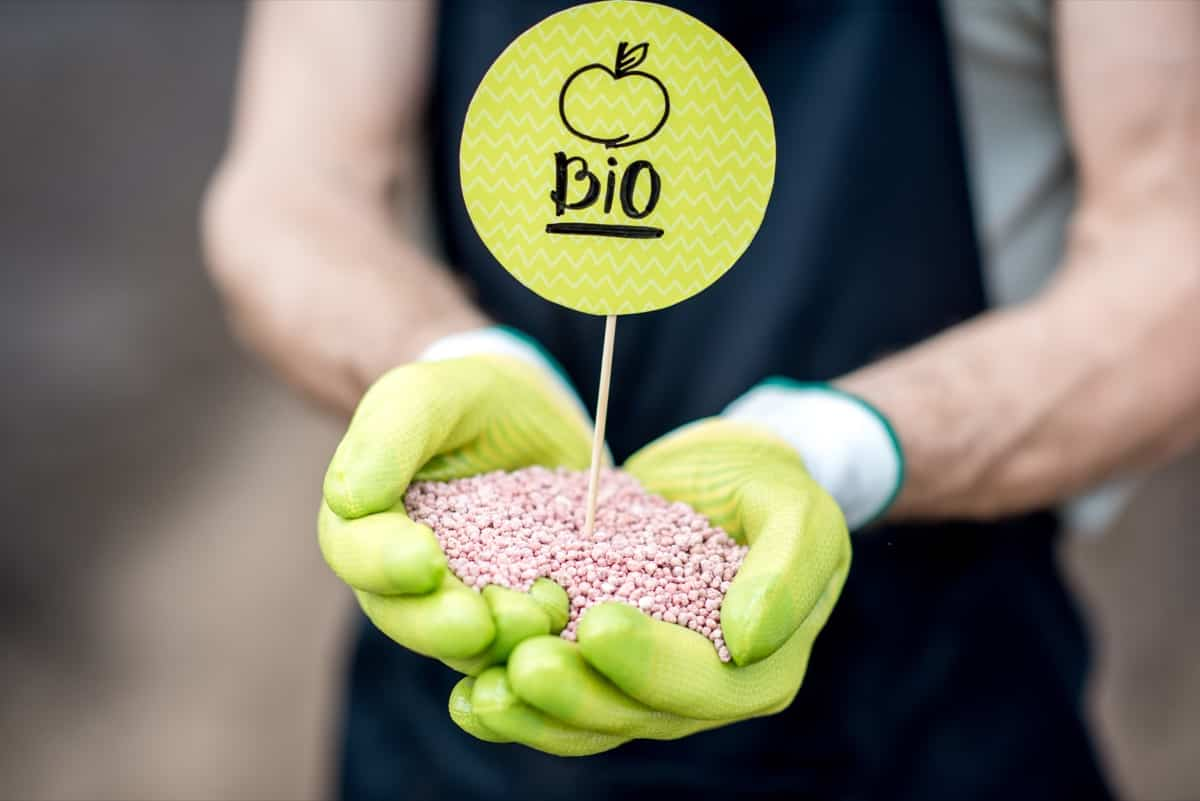
One of the key benefits of using fertilizer in balcony vegetable gardening is its ability to enhance root development. Stronger roots mean better nutrient absorption and improved water uptake, leading to more resilient plants that can endure drought or excessive rainfall. Moreover, fertilizers contribute to plant health by promoting vigorous growth and preventing nutrient deficiencies. Proper fertilization gives your vegetables an adequate supply of essential elements like nitrogen, phosphorus, and potassium – all necessary for optimal plant functioning.
Conclusion
Soil and fertilizer play a critical role in the success of balcony vegetable gardening. Understanding the importance of soil quality and nutrient availability is essential for maximizing crop yield and promoting sustainable practices. By nurturing healthy plants through proper soil and fertilizer management, balcony gardeners can create an optimal environment for plant growth. The essential connection between soil and fertilizer ensures that plants receive the necessary nutrients to thrive.
- Gongura Seed Germination and Planting Methods
- Cabbage Seed Germination and Selection
- Broccoli Seed Germination and Selection
- Asparagus Seed Germination and Variety Selection
- Seasonal Flower Gardening: Best Practices for Spring, Summer, Fall, and Winter
- How to Grow Hibiscus from Flower
- Plantation Ideas for Home Decoration: A Beginners Guide
- Flower Garden Designs and Layouts for Beginners
- Planting and Spacing Techniques in Papaya: A Beginner’s Guide
- Growing Gold: Essential Techniques for Planting Pineapples
- How to Make Kalanchoe Plant Bushy: Home Remedies and Solutions
- 11 Reasons Why Your Gardenia is Not Blooming: Home Remedies and Solutions
- Eco Elegance: The Guide to Designing a Drought-Tolerant Landscape
- Gardening on a Slope: Strategies for Hillside Landscaping
- Nourish and Flourish: Top Organic Mulches for Thriving House Plants
- Everything You Want to Know about Indian Mogra Flower: Discover Uses and Growing
- Green Thumb Success: Expert Tips for Cultivating Greenhouse Pumpkins All Year Round
- Maximize Growth & Flavor: The Ultimate Guide to Companion Planting in Herb Gardens
- How to Control Rhododendron Problems Naturally: Home Remedies and Organic Ways to Fix Them
- Natural Magic: The Remarkable Benefits of Cinnamon for Plants
- Best Steps to Revive Dying Tulip with Natural and Organic Treatment
- 10 Reasons Why Your Angel Trumpet is Not Blooming: Remedies and Treatment
- How to Fix Periwinkle Leaf and Flower-Related Problems: Natural Remedies and Solutions
- How to Fix Zinnias Leaf and Flower Problems: Discover Natural and Home Remedies
- Organic Steps to Induce Lemon Tree Flowers: A Comprehensive Guide
- Bloom Booster: Crafting the Perfect Homemade Bougainvillea Fertilizer
- Optimizing Growth: A Guide to Applying NPK Fertilizer for Potted Plants
- 10 Best Homemade Fertilizers for Rubber Plant: DIY Recipes and Application Method
- How to Boost Female Pumpkin Flowers: Effective Steps for More Flowers and High Yields
- Transform Your Indoor Garden: Top Benefits of Pink Salt for Houseplants
- 10 Best Homemade Fertilizers for Peacock Plants (Calathea): Easy DIY Guide
- Unlock Blooms: 9 Reasons Why Your Potted Chrysanthemum is Not Blooming
- 8 Reasons Why Your Potted Hibiscus is Not Blooming: Fix it with Simple Solutions
- Unlock Blooms: 9 Key Reasons Your Potted Frangipani Won’t Flower
- 10 Reasons Why Is My Ice Plant Not Blooming: Remedies and Treatment
- 10 Reasons Why My Potted Hydrangea Not Blooming: Treatment and Remedies